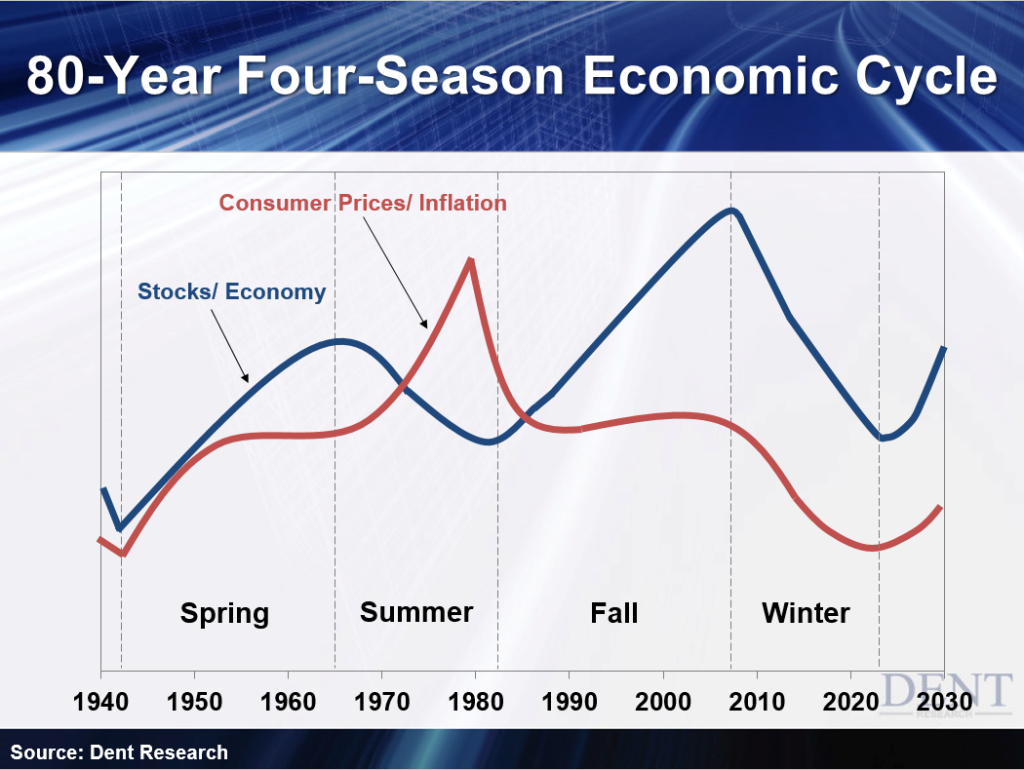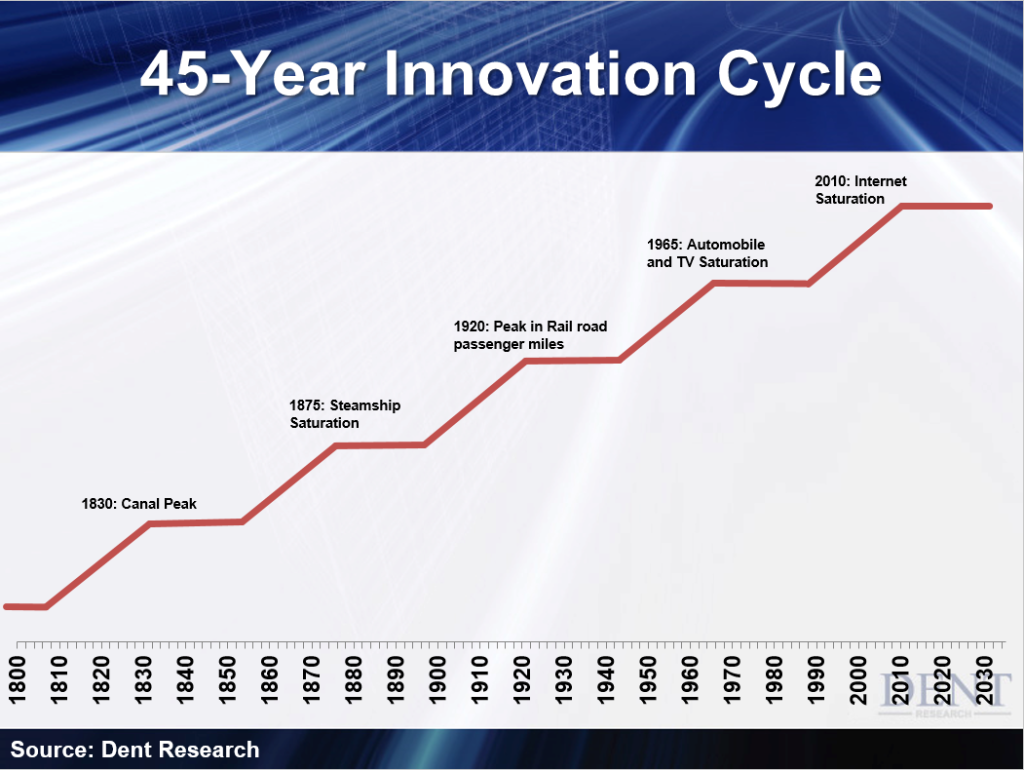I was reading the Wall Street Journal last week and came across an article called “The Myth of Basic Science.”
It made the point my research long ago proved to me: that the evolution of technology moves on its own.
Politicians think they can turn it on and off like a tap – just start a new space program!
They also think they can stimulate the economy to grow forever without having recessions any more – and other ridiculous assumptions that show how little they understand the dynamics of free market capitalism.
Our economy is not an inorganic machine. It’s a dynamic biological system – like coral reefs that innovate and adapt, without human intervention.
This is where politicians, economists, central bankers, and even historians are totally clueless.
They point to Thomas Edison and say: “How else would we have gotten the light bulb?”
Do you really think that without Thomas Edison we wouldn’t have the light bulb!?
People honestly believe that without him, such innovation would not have happened. They think all you have to do is find the right person, and innovation will follow.
Alright, first of all, most inventors and radical entrepreneurs are very eccentric people. I would know! You don’t “find” these people. They emerge on their own, most of the time after they’ve already made a name for themselves and before you recognize them.
Secondly – history shows that this is simply not true. No one person is ever responsible. Many people have worked on major breakthroughs at the same time.
Elisha Gray filed for a patent on the telephone the same day as Alexander Bell.
By the time Google (O:GOOGL) hit in 1996, several other search engines already existed.
Six people invented the thermometer. Five the telegraph. Five the steamboat. Four photography!
So let me ask again: do you really thing we wouldn’t have the light bulb without Thomas Edison?
It is the economic environment and season of the economy that drives radical innovation in all its different forms.
They tend to come in deflationary times of depression. Innovation feeds off conflict. Society begs for solutions in times of crisis. That’s why electricity, the internal combustion engine, and the telephone clustered together around the depression of the mid-1870s to the mid-1890s. In the 1930s and just after it was the computer, the jet engine, TVs, the supermarket, the laundromat – even the tampon!
Stanford economist Brian Arthur argues correctly: “technology is self-organizing and can, in effect, reproduce and adapt to its environment.”
Not to politicians and human intentions.
Who remembers the “Tucker” automobile in 1948? Nobody! It totally flopped. Why? Because the automobile had already been invented! The economy didn’t need another radical innovation in the post-World War II boom – despite how badly Preston Tucker wanted to reinvent it. It needed incrementally better and lower cost versions of the models already in place!
This is why, if you want to see the future, it’s important to understand and plot out proven cycles. You can’t listen to some politician that thinks he or she has a vision, or even great business people or inventors. Most will be wrong. A few will be right.
At Dent Research, we have two cycles that can help you understand what’s going on and when things will change.
The first is the “80-Year Four Season Economic Cycle” below.

Radical or basic innovations – like the mainframe computer and jet airplanes – occur in the winter season, and then spread mainstream in the spring boom to follow.
The more practical innovations – like PCs and cell phones – occur in the summer season, then spread mainstream in the fall boom.
The economic adversity of bust periods drives innovations. The boom periods encourage their adoption – and in modern times, demographic trends drive such periods.
We can predict those cycles. We are in a winter season wherein we will see radical innovations. Some we may not recognize at first. And no one will know what they are and who they come from, or what their ultimate impact will be.
There is another cycle for innovation. This is the 45-Year Innovation Cycle.

This one sees clusters of complementary innovations move fully mainstream every 45 years – peaking in 1920 for railroads and telegraphs, 1965 for automobiles, phones, and appliances, and 2010 for the Internet and mobile computing.
The Internet Revolution has already happened. Its best gains have now been reduced to fun and frolics on Facebook (O:FB).
This is how cycles run!
We’ll see new and revolutionary technologies change our life and work again – but not until this cycle turns up between 2032 and 2055. That’s when we’ll see how the next killer apps change the world.
Until then, be skeptical when politicians and visionaries “promise” how much the economy will change and prosper in the coming decades.
IBM’s Thomas Watson had no idea in the 1950s where computers would take us. He only saw the need for about five of them.
It wasn’t until the late 1970s when PCs emerged that Steve Jobs had a surprisingly good vision.
If you saw the recent film Steve Jobs, you know he wasn’t right on point. The Macintosh flopped so hard he got fired. His revolutionary vision came later than expected.
So will mine. Central banks have delayed and worsened the next crash with continued economic stimulus. They’ve poisoned the economy’s biology. But this cycle will turn down. And the greatest bubble in modern history will crash.
Eventually we’ll all pay… but cycles, at some point or another, will always turn up again.
Our research shows the next concerted global boom will come between 2023 and 2055. Who do you know that can predict that far out with reasonable accuracy?
